Mieczysław Stoor
Birth : 1929-09-05, Bojanowo k. Rawicza, wielkopolskie, Polska
Death : 1973-10-05
History
Mieczysław Stoor (5 September 1929 – 5 October 1973) was a Polish film actor. He appeared in 37 films between 1954 and 1973.
While still a student, he performed at the Teatr im. Wojciech Bogusławski in Kalisz. In the theater, he made his debut on August 18, 1950 with the role of Stańczyk in the play Window in the Forest on the stage of the Kalisz stage. In 1953 he graduated from the Acting Department of the PWST in Łódź. In the years 1952-1953 he was an actor in the Universal Theater in Łódź, and in the 1953 season.
From Wikipedia, the free encyclopedia

Told in flashback as Mieszko lies feverish in his bed just before the Battle of Cedynia, Gniazdo recounts how the revered leader extended Poland's borders, formed an alliance with Emperor Otto I, and ultimately strengthened his country's autonomy by achieving victory during that crucial battle in the year 972.
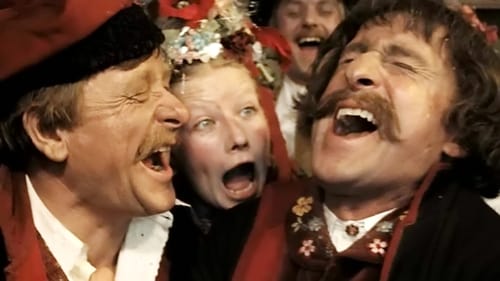
Wojtek
Set at the turn of the century, the story concerns a Polish poet living in Cracow who has decided to marry a peasant girl. The wedding is attended by a heterogenous group of people from all strata of Polish society, who dance, get drunk and lament Poland's 100-year-long division under Russia, Prussia, and Austria. The bridegroom, a painter friend, and a journalist each in turn is confronted with spectres of Polish past. In the end a call to arms is called but turns out to be a hoax.

porucznik Edward Radoń

Herman, uczestnik obiadu opowiadający historię Prospera

grabarz Zenobiusz
A young journalist from Warsaw goes to a small town of Kamienica to prepare a report on a motorcycle gang.

Takes place in a prewar Poland. A tubercular young man comes to stay with his brother on a farm. He is in love with life and constantly plays 1930's music on a piano. He gets involved with his brother's problems and also becomes the lover of a simpleminded farm girl. The brother's dead wife may have had an affair with the hired man who is to marry the farm girl. His daughter will not confirm his suspicions. But the brother's death leads to his acceptance of the past, forgiving his wife's memory and making up with his little daughter.
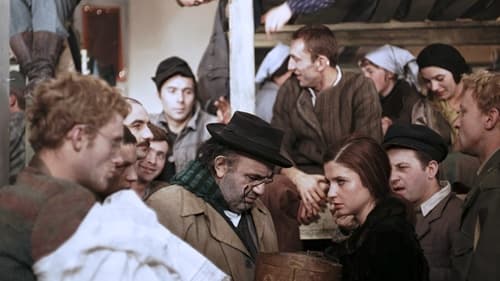
Chorazy
Film opens with the mad rush of haphazard freedom as the concentration camps are liberated. Men are trying to grab food, change clothes, bury their tormentors they find alive. Then they are herded into other camps as the Allies try to devise policy to control the situation. A young poet who cannot quite find himself in this new situation, meets a headstrong Jewish young girl who wants him to run off with her, to the West. He cannot cope with her growing demands for affection, while still harboring the hatred for the Germans and disdain for his fellow men who quickly revert to petty enmities.

werbownik w urzędzie zatrudnienia

In 1969’s WENUS Z ILLE (VENUS D’ILLE) Majewski returned to the work of Prosper Merimee, specifically his 1835 story “Venus d’Ille,” about an accursed statue (a story that was subsequently filmed by Mario and Lamberto Bava in 1979). Said statue, fashioned in the guise of an anguished woman, is seen in a remote inn, having been recently interred from the ground. The occasion is a wedding attended by the protagonist, an unassuming man who becomes caught up in a bizarre nightmare when the groom unthinkingly sticks his wedding ring on a finger of the statue--and can’t get it off!
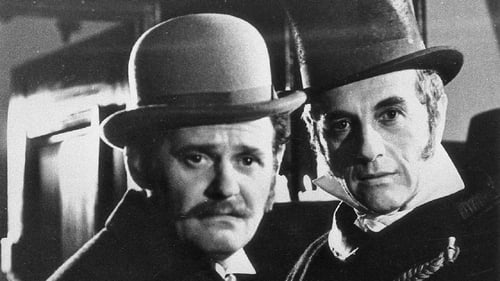
urzędnik policji
Polish short horror film made in 1968 by Jerzy Gruza upon the story of Jozef Korzeniowski as a part of the TV anthology "Opowiesci Niezwykle" (Incredible Stories). We have 20th century. Mysterious person - Jozef - comes to the apartment of a writer. The mysterious person takes the writer back in the 19th century, where they meet The Death.

A lonely Border Guard officer, with a girl and a former villain, has to face a local corrupt Militia (Police) commandant and his people, in wild Bieszczady Mountains in the Polish East.
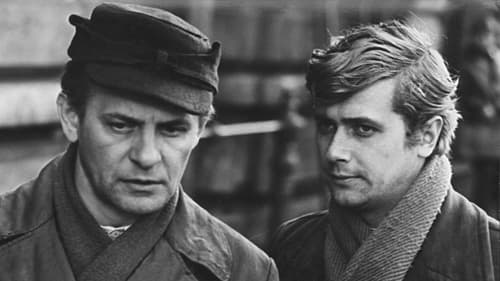
major "Stary", dowódca Michała
WWII. Zyga, one of the Resistance soldiers in Kraków (Poland), is arrested by Gestapo. Soon later with new arrestings comes out that Germans must have received some new informations. Zyga is suspected to become an informator.

kapitan Vogel
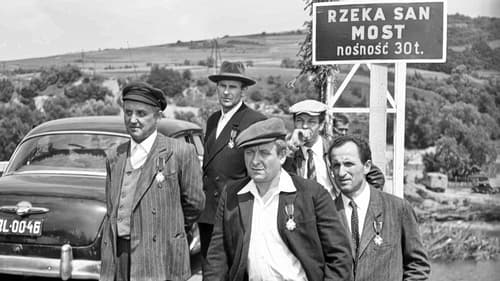
"Byk" / "Bull"
A group of workers builds a bridge near a large dam. They get drunk with a visiting reporter, who falls into the river and disappears.
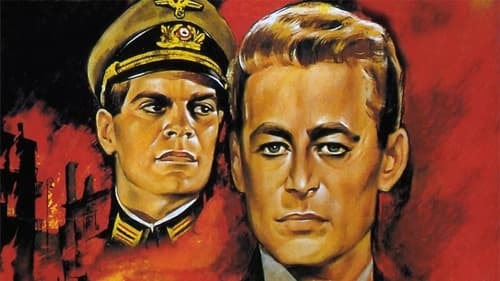
German Wochenschau Reporter (uncredited)
A German intelligence officer investigates a prostitute's killing in Warsaw during World War II. He lands on three major Nazi generals as suspects, two of whom are also involved in a plot to kill Adolf Hitler.
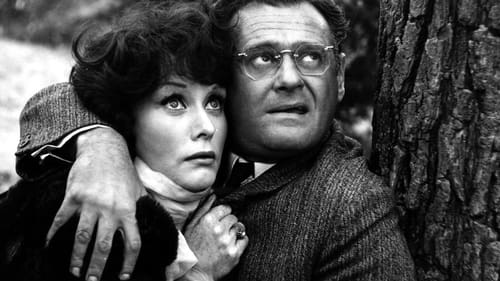
The first Polish film to discuss the failure of September 1939 Polish-German war. We can see it from the point of view of a university intellectual, fascinated by German culture, who decides to take active part in the conflict. Professor Gabriel Tomicki spends the last evening before WW2 breaks out quarreling with his university colleague Professor Dog-Lesniewski about the superiority of German over French culture. He finds German culture fascinating and believes neither in war, nor in Nazi barbarity. When the war begins, he tries to enlist and befriends Florentyna, a nightclub dancer and his neighbour. Gabriel falls in love with her, finally manages to become a soldier and even prove his courage. One day, he meets by chance his university adversary Dog-Lesniewski... —kinoholik
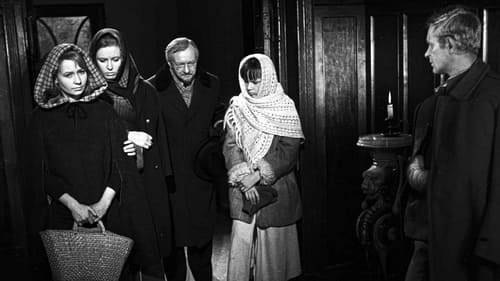
Freed Polish soldiers are trapped in a small town in Germany during the last days of World War II. After a doctor's daughter is raped by a concentration camp worker, the Poles allow her and her father to stay in the house that is their temporary quarters. While waiting to be repatriated, the war-weary group is forced to fight some German soldiers who invade the town. The war brings out conflicting emotions of the Poles who find themselves trapped in the house and once again under fire from the enemy.

Bob
A young boy and girl travel in a strange car and encounter various objects which come alive to help them. Eventually they leave the Earth altogether and visit a strange, new planet.
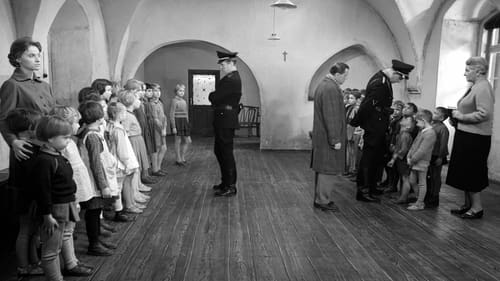
German Motocyclist
Three separate stories depicting the tense everyday life during occupation, as seen through the eyes of children. In “On the Road,” the two main protagonists are lost in the September’s strife: a young boy, and a soldier transporting the valueless documents of his broken unit. In “Letter from the Concentration Camp” the story’s protagonists are young boys who help their mother during the hardships of the occupation. Their treasure is an officer uniform belonging their father who is being held in a prisoner of war camp. In “Blood Drop,” the Germans find a set of typical Aryan characteristics in this story’s protagonist – a Jewish girl, hiding in an orphanage.

Władysław Wiśniewski
Based on real events story of stealing methyl alcohol causing mass poisoning in town.
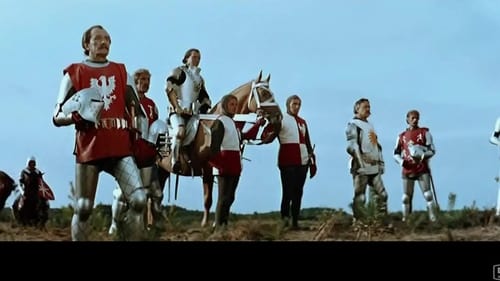
Hlava
A tale of a young impoverished nobleman, who with his uncle returns from a war against the order of the Teutonic Knights in Lithuania. He falls in love with a beautiful woman and pledges an oath to bring her "three trophies" from the Teutonic Knights.

Jaś Raubach

Gerhard Schmidt
The fate of a German found by the French peasants - a deserter from the Legion of Foreign Affairs fighting in Vietnam.

(uncredited)
Karwowski, son of a pre-war colonel, is transferred from the West to Poland with the task of assembling a spy and diversion network. The task seems to be easy. However, after landing in Poland, it turns out that nobody wants to cooperate with him. Karwowski's "100% reliable" contacts with potential collaborators turn out to be completely outdated.
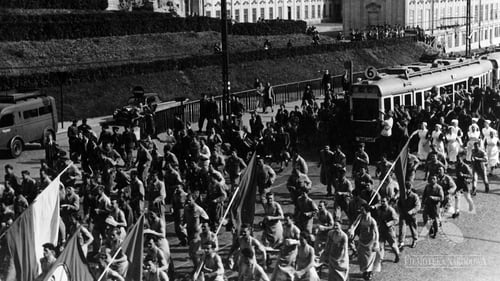
Marek Kozioł
In war-ravaged Warsaw, five juvenile delinquents are given probation for stealing, to rehabilitate themselves, but remain under the influence of their profiteer-boss.



















